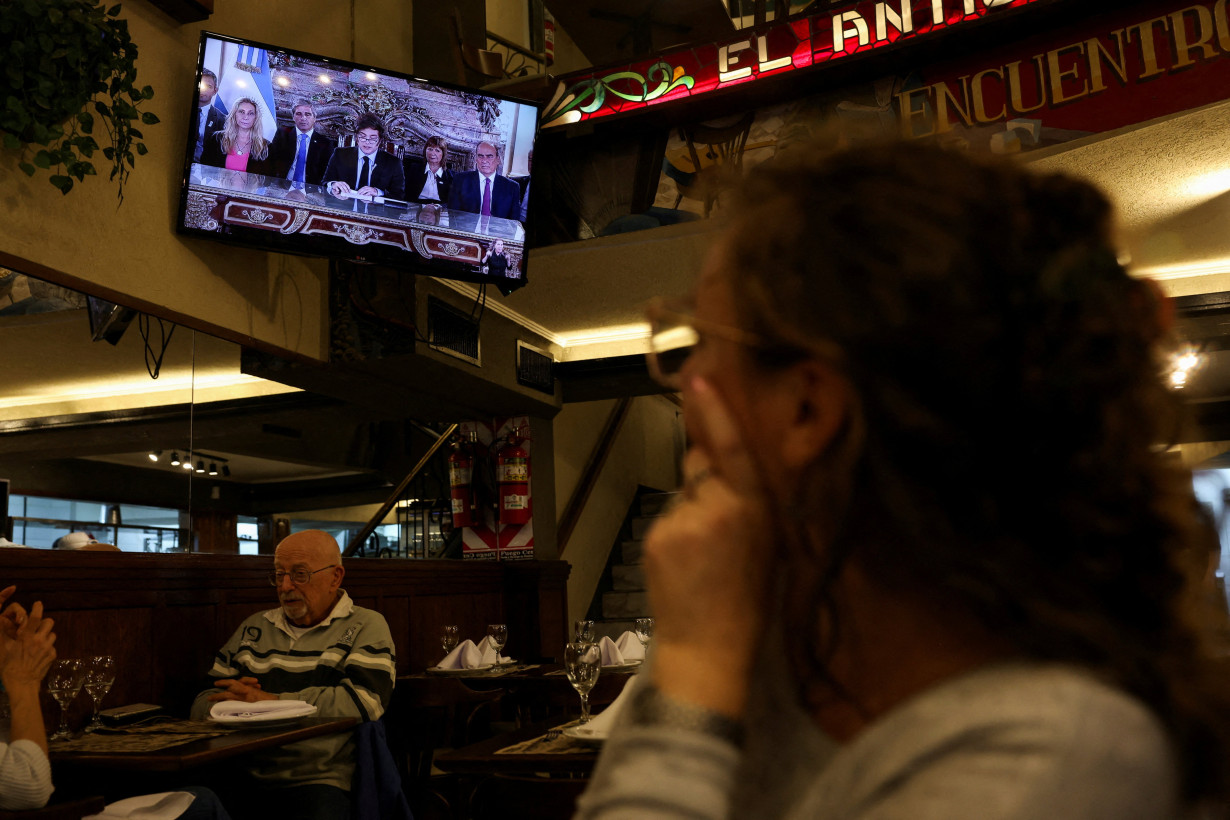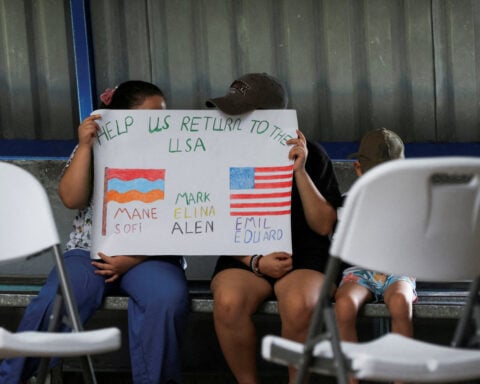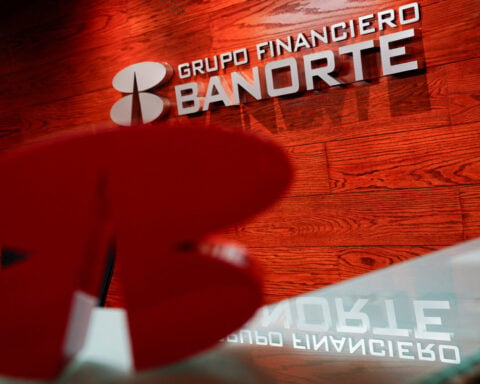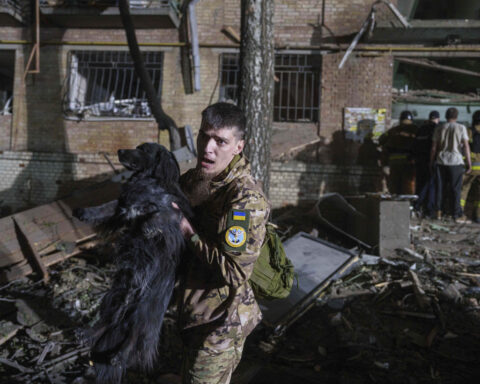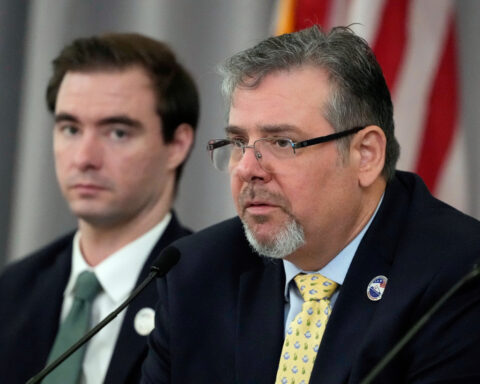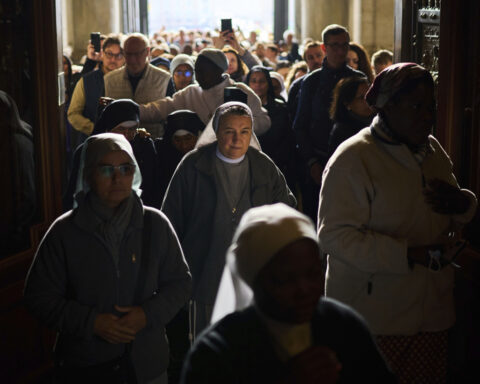By Jorge Otaola
BUENOS AIRES (Reuters) - Argentina has sealed a $20 billion extended fund facility (EFF) with the International Monetary Fund and dismantled large parts of its currency controls as libertarian President Javier Milei looks to drag the country out of a prolonged economic slump.
With markets seeing the developments as positive, what is the IMF deal and the FX policy shift all about?
HOW MUCH IS ARGENTINA GETTING?
The country says that it is set to receive $28 billion in 2025 alone, including $15 billion of the IMF money, $6.1 billion from other multinational lenders, $2 billion from global banks, and $5 billion from extending a currency swap with China.
The IMF will disburse $12 billion this week, followed by a programme review in June that should unlock $2 billion more and a further review at the end of the year with another $1 billion.
"These liquid resources will be used to strengthen the (central bank's) balance sheet through the repurchase of non-transferable bonds by the Ministry of Economy," Argentina's central bank said.
WHAT'S THE NEW FX POLICY?
The new exchange rate regime will allow the peso to float freely within a moving band between 1,000 and 1,400 pesos per dollar, shifting from a far more tightly-controlled "crawling peg" that had the currency at around 1,074 on Friday.
The new moving band will expand by 1% each month at both the higher and lower limits of the band. The central bank will be able to buy and sell dollars if the band is breached, while within the band it may choose to operate in secondary peso markets through open market operations, the central bank said.
The IMF, in its staff report, added that the currency framework would evolve over time towards a "fully flexible exchange rate in the context of a bi-monetary system, where the peso and U.S. dollar coexist."
WHAT'S THE RESERVES BUILD-UP TARGET?
Under the IMF deal, Argentina will need to build up net foreign reserves to the tune of $4 billion by the end of the year versus the level on December 31, 2024. A baseline target would see this accelerate to an $8 billion build-up next year.
While Milei's government has made reserves build-up a major focus and had some success, this has gone into reverse in recent weeks amid rising pressure on the peso, leading net reserves to slide back to negative $7 billion, according to an IMF estimate.
DOES 'NET ZERO' FISCAL TARGET REMAIN?
The agreement foresees a baseline aiming for a primary fiscal surplus this year of 1.3% of GDP, slightly below last year, although economy minister Luis Caputo has already suggested the government will aim higher at around 1.6%.
The overall fiscal target - including debt repayments - targets a fiscal balance this year. The primary and overall surplus would start to rise next year and beyond.
COULD ARGENTINA RETURN TO CAPITAL MARKETS?
The IMF said in its staff report that if there is "decisive implementation" of the programme and rapid build-up of reserves, then this could lower borrowing costs for Argentina and see it re-access international capital markets by early 2026.
The country's challenges, however, are not over, with reserves in the red and inflation, while down sharply from when Milei took office in December 2023, still sticky.
"Reserves coverage remains very weak," the IMF said. "More work is needed to anchor inflation and durably strengthen the country's external position and resilience to a more complex global backdrop."
(Reporting by Jorge Otaola; Editing by Adam Jourdan and Susan Fenton)

 Trump has begun another trade war. Here's a timeline of how we got here
Trump has begun another trade war. Here's a timeline of how we got here
 Canada's leader laments lost friendship with US in town that sheltered stranded Americans after 9/11
Canada's leader laments lost friendship with US in town that sheltered stranded Americans after 9/11
 Chinese EV giant BYD's fourth-quarter profit leaps 73%
Chinese EV giant BYD's fourth-quarter profit leaps 73%
 You're an American in another land? Prepare to talk about the why and how of Trump 2.0
You're an American in another land? Prepare to talk about the why and how of Trump 2.0
 Chalk talk: Star power, top teams and No. 5 seeds headline the women's March Madness Sweet 16
Chalk talk: Star power, top teams and No. 5 seeds headline the women's March Madness Sweet 16
 Purdue returns to Sweet 16 with 76-62 win over McNeese in March Madness
Purdue returns to Sweet 16 with 76-62 win over McNeese in March Madness
